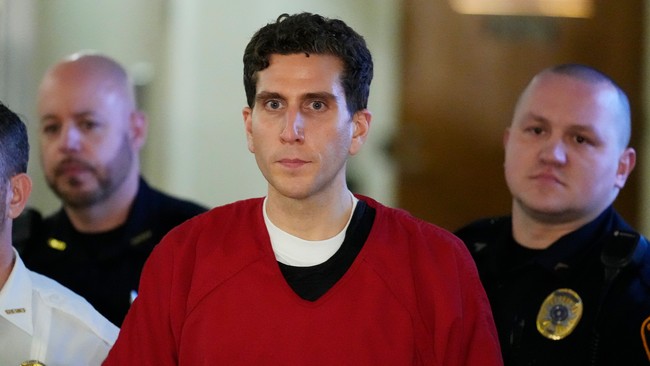About 18 months ago, residents on Capp Street in San Francisco were complaining loudly about prostitution in their neighborhood. As with everything else in San Francisco, this problem became complicated at least partly because progressive politics were involved.
On the one hand, residents were fed up with the hookers and their violent pimps making their neighborhood unlivable. On the other hand, everyone in SF has been trained to believe that there’s nothing wrong with “sex work.” So you literally had people on one hand watching underage girls on the street and women being beaten by pimps. And on the other hand, no one wanted to say it was wrong per se.
In fact, a San Francisco Supervisor named Hillary Ronen suggested the solution to the problem was legalizing prostitution. How this was supposed to reduce demand and violence against women and neighbors wasn’t clear.
The other problem was a law championed by State Sen. Scott Wiener which made it no longer a crime to loiter with the intent to engage in prostitution in the city. Sen. Wiener claimed this new law was needed to prevent the targeting of trans women. Police said it meant they had no options to arrest hookers except costly and time consuming undercover operations.
Despite all of this, the city did respond and set up concrete barriers aimed at preventing the customers for this illegal trade from cruising the streets. And it worked for a while. Things got much better for residents of Capp Street. But it turns out the pimps and hookers just moved a few blocks away to Shotwell Street and residents there are now fed up and are suing the city over the problem.
“San Francisco’s government has failed to respond to this crisis and failed to enforce its laws against sex trafficking and prostitution, as well as other laws against public disorder,” the lawsuit claims…
Harshil Ved, who has lived nearby since 2020, saw his parked car totaled in front of his home when it was struck by a driver who was allegedly seeking a sex worker. The same parked car was sideswiped and damaged in July, but police told Ved they would not investigate, “and any formal complaint would be solely for purposes of obtaining an insurance payout,” he said.
Other plaintiffs, including Shotwell Street bar owner David Hall and 33-year resident David Quinby, described violent encounters with sex workers and pimps. Quinby stated that he was attacked with a brick and left scarred…
In the complaint, Quinby said Shotwell’s quality of life “deteriorated significantly” when city staff set up metal barriers along Capp Street, “which now make it difficult to drive and solicit sex.”
The San Francisco Chronicle has a story up as well and, as you might expect, their story seems much less sympathetic to the residents of Shotwell street and much more sympathetic to the “sex workers.”
As she stood on Shotwell near 19th Street Monday night in see-through pants and spike heels, 20-year-old Rene said she was mystified at why residents could be so irritated at her and her fellow sex workers.
“Look, we try to be respectful of the people living here, and stay away from doorsteps people ask us to stay away from,” she said. “This is a good street. Quiet. Safe. Way better than Oakland, where I live.
Another prostitute working Shotwell street came all the way from Seattle. “I like it here,” she told the Chronicle. And of course she does. Because the chances of anything happening to stop the illegal behavior are slim in San Francisco. It’s a free-for-all most of the time on every issue because local politics want it to be that way. Speaking of which, the local left-wing activists also get a lot of space in this story.
Lyon-Martin Community Health Services sends a van to Shotwell two nights a week, offering condoms and other sex-work supplies along with aid references. And though some locals resent that as enabling, Lyon outreach director Celestina Pearl says it is life-saving.
“Nobody is pro-trafficking, and yes we do want better lives for these women,” Pearl said. “But the better solution is not to vilify, stigmatize and criminalize. If people really want to solve the problem I would love to see them advocate for decriminalization of sex work, so these women and move indoors where it’s more dignified and safer and more peaceful for the residents.”
Nobody is pro-trafficking but if it happens out of sight then it’s not so bad. That seems to be the real argument being made by the pro-legalization camp.
The good news is that the city will be sued based on current law, not some progressive fantasy. Frankly, San Francisco ought to be sued a lot more often than it is. Maybe then authorities will feel the need to takes these problems more seriously.
Read the full article here




![CNBC Hosts Laugh Off Harris’s Tax Proposal [VIDEO] CNBC Hosts Laugh Off Harris’s Tax Proposal [VIDEO]](https://www.lifezette.com/wp-content/uploads/2024/08/2024.08.28-07.31-lifezette-66cf7b1d26479.jpg)
![Triumph the Insult Comic Dog Mercilessly Roasts Anti-Trump Liberals [WATCH] Triumph the Insult Comic Dog Mercilessly Roasts Anti-Trump Liberals [WATCH]](https://www.rvmnews.com/wp-content/uploads/2025/01/2025.01.23-02.33-rvmnews-6792531f22809.jpg)



![Majority of Americans Now Support Trump’s Mass Deportation Plans [WATCH] Majority of Americans Now Support Trump’s Mass Deportation Plans [WATCH]](https://www.rvmnews.com/wp-content/uploads/2025/01/2025.01.23-01.38-rvmnews-679246574bc18.jpg)